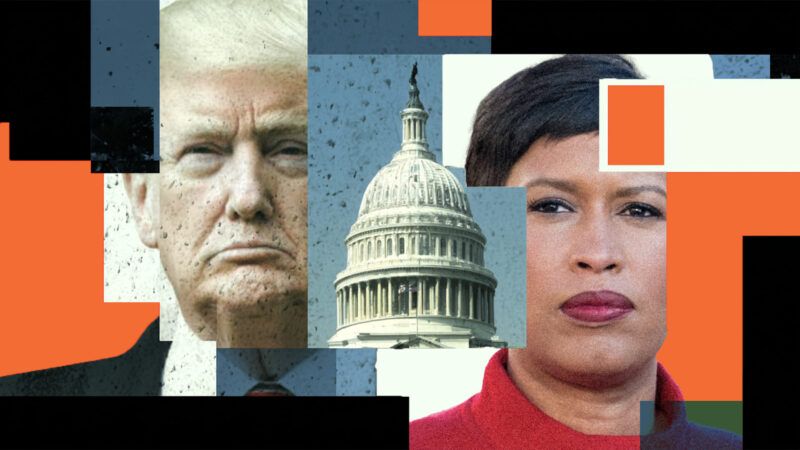Trump Threatens Another Federal Takeover of D.C. While Planning Memphis Crackdown
Trump’s emergency order in the nation’s capital expired last week, but he has already rolled out a plan to crack down on crime in Memphis.

President Donald Trump may not be done with his federal takeover of Washington, D.C., even though the emergency order that brought an influx of federal law enforcement and National Guard members to the nation's capital expired last week. On Monday, Trump threatened to retake control of the D.C. police after Democratic Mayor Muriel Bowser emphasized that local police won't enforce federal immigration policies.
Leading up to the emergency order expiration, Bowser ordered a post-emergency plan earlier this month to continue the work of the Safe and Beautiful Emergency Operations Center, which was set up in response to Trump's emergency order. Under the plan, the center is indefinitely tasked with "manag[ing] the District's response, coordinat[ing] centralized communications, and ensur[ing] coordination with federal law enforcement to the maximum extent allowable by law within the District." The order went on to list federal agencies for which "coordination of…enhanced federal law enforcement efforts" will continue, including the FBI, the Drug Enforcement Administration, and the Secret Service. The list of agencies, however, did not include Immigration and Customs Enforcement (ICE).
During a press conference on Wednesday, Bowser clarified that the Metropolitan Police Department (MPD) would return to pre-emergency policies regarding cooperation with ICE. "Immigration enforcement is not what MPD does," Bowser said, "and with the end of the emergency, it won't be what MPD does."
In response to Bowser, Trump posted on Truth Social, "If I allowed this to happen, CRIME would come roaring back. To the people and businesses of Washington, D.C., DON'T WORRY, I AM WITH YOU, AND WON'T ALLOW THIS TO HAPPEN. I'll call a National Emergency, and Federalize, if necessary!!!"
Bowser's announcement came as a break in a relatively cooperative relationship between the mayor and Trump—one that helped ensure that the White House and Congress wouldn't extend the emergency order.
Over the course of the 30-day order, over 2,300 arrests were made, according to data analyzed by the Associated Press. More than 40 percent of these arrests involved immigration offenses, although it is unclear how many of these included other pending charges. Although Trump has insisted that crime reduction and deportations of "the worst of the worst" are inseparable, and has used this argument to push for unprecedented levels of mass deportations, over 70 percent of immigrant detainees have had no criminal conviction.
While weighing the continued entanglement in Washington's local affairs, Trump signed a memo on Monday to mobilize federal law enforcement and National Guard members in Memphis, Tennessee. "We're going to Memphis," Trump said while appearing on Fox & Friends on Friday. "Memphis is deeply troubled….We're going to fix that just like we did Washington." However, mirroring operations in D.C. may prove difficult, provided that Memphis leadership is wary about the development and, unlike D.C., isn't limited by the threat of direct and continuous federal control.
Replicating the Washington campaign may also not deliver the crime reduction that the president is promising. Although Trump asserts that it has been an undeniable success, the tradeoffs of such drastic action are more nuanced. Crime did go down—property crime more than violent crime—however, the same military-laden visuals that created fear among those who commit crime also led to less tourism and restaurant patronage. The longer-term impacts of the takeover are also suspect, as some question whether the disruption and lack of respect for the civil liberties of law-abiding citizens caused an erosion of the community's trust in law enforcement, something that could hinder crime reduction efforts in the future.
"I'm fearful that where this is going and that we will not get the promise of zero crime," Democratic Mayor Lee Harris, the mayor of the county in which Memphis is located, said during a press conference on Friday advocating for federal law enforcement to help combat crime, but rebuking the need for armed military personnel occupying the streets.
Harris is right to question such drastic federal action coming to his home city. As the takeover in Washington has shown, the federal government's involvement in policing might marginally reduce some crime, but it comes at the expense of personal freedoms and civil liberties—and potentially prolonged federal control.


Show Comments (31)